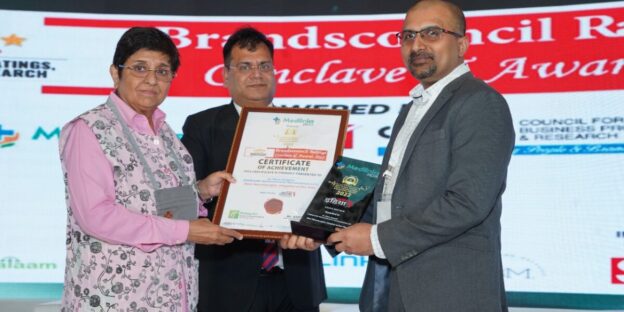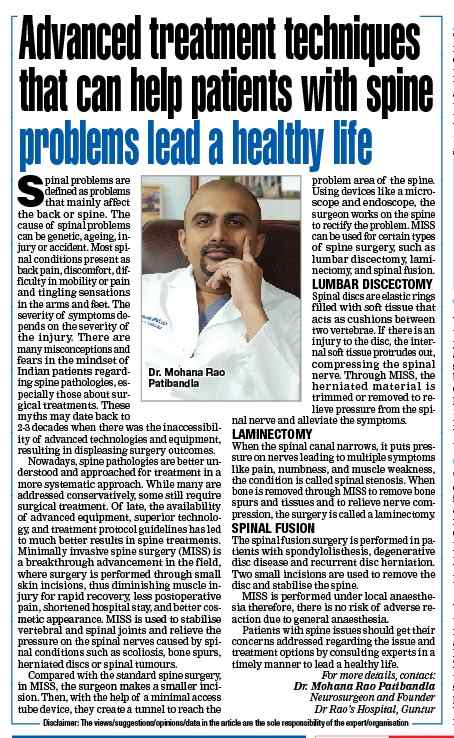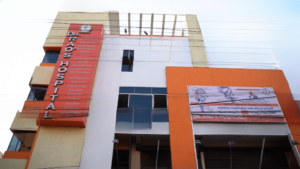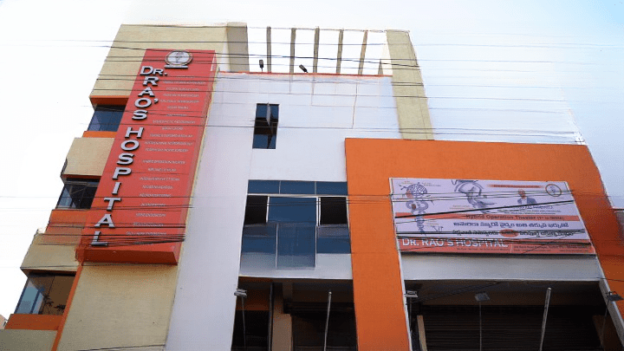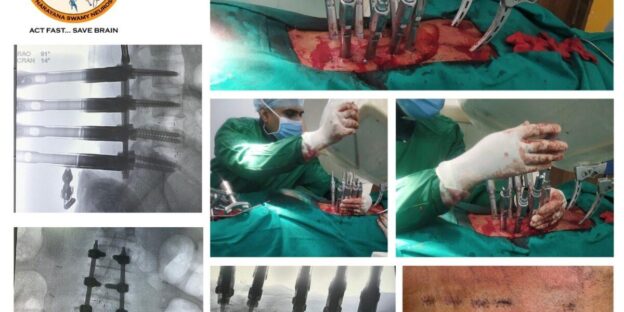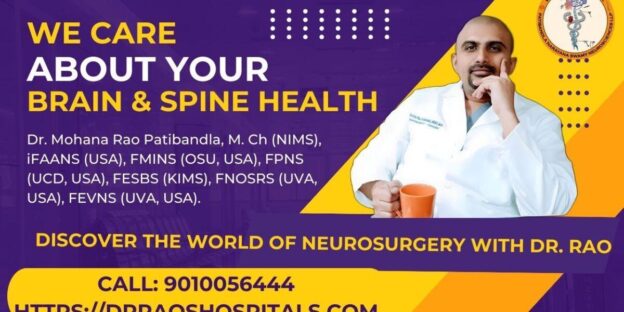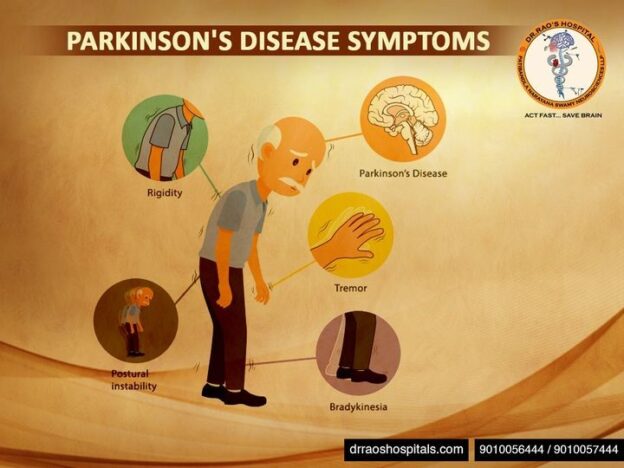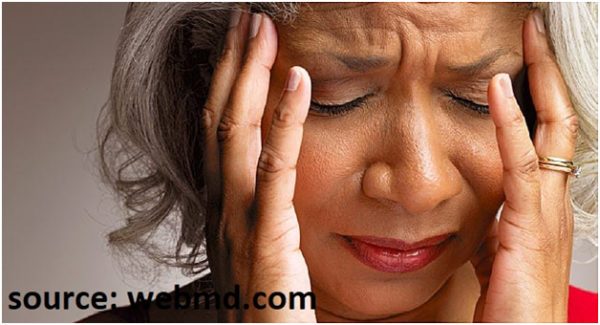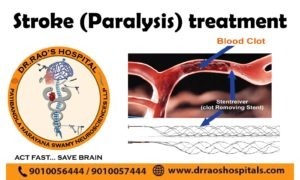Comprehensive Neurology and Spine Care at Dr. Rao’s Hospital, Guntur
Neurology Near Me
When searching for “neurology near me,” it’s crucial to find a healthcare provider that offers comprehensive, state-of-the-art services. Dr. Rao’s Hospital in Guntur is a leading neurological care center, offering diagnostic and treatment services for various neurological conditions. With advanced technologies and expert neurologists, the hospital provides personalized care for every patient. Whether you’re experiencing headaches, seizures, or other neurological issues, Dr. Rao’s Hospital ensures you receive the best care.
Neuro Specialist Near Me
Finding a “neuro specialist near me” can be daunting, especially when dealing with complex conditions. Dr. Rao’s Hospital is home to some of the best neurosurgeons in India. These experts are well-versed in traditional neurological treatments and specialize in the latest minimally invasive procedures. From initial diagnosis to treatment and rehabilitation, Dr. Rao’s hospital team ensures that each patient receives comprehensive care tailored to their needs.
Neurologist Specialist Near Me
When looking for a “neurologist specialist near me,” you want to ensure that the specialist is experienced and accessible. Dr. Rao’s Hospital in Guntur offers access to top neurologists who specialize in a wide range of neurological disorders. These specialists use advanced diagnostic tools like MRI, CT scans, and EEGs to diagnose conditions accurately. They then create customized treatment plans, including medication, therapy, or surgery, ensuring you receive the most effective care.
Neurologist in Near Me
For those searching for a “neurologist in near me,” Dr. Rao’s Hospital is an excellent choice. Located in the heart of Guntur, the hospital is easily accessible and offers world-class neurological services. The neurologists at Dr. Rao’s Hospital are highly trained and experienced in treating various conditions, from migraines to Parkinson’s disease. With a patient-centered approach, they focus on providing effective treatments that improve quality of life.
Spine Doctors Near Me
Spine health is critical to overall well-being, and finding reliable “spine doctors near me” is essential for those suffering from back pain or spinal disorders. Dr. Rao’s Hospital is known for its expert spine doctors specializing in diagnosing and treating spine conditions. Whether you have a herniated disc, scoliosis, or chronic back pain, the spine doctors at Dr. Rao’s Hospital provide surgical and non-surgical treatment options to alleviate pain and improve mobility.
Spine Specialists Near Me
If you’re searching for “spine specialists near me,” look no further than Dr. Rao’s Hospital. The spine specialists here are traditional and minimally invasive spine surgery experts. They are equipped to handle complex spinal disorders with precision and care. From spinal fusion to disc replacement, the team at Dr. Rao’s Hospital ensures that each procedure is tailored to the patient’s unique needs, resulting in faster recovery times and better outcomes.
Best Neurologist Near Me
Regarding your health, you deserve the “best neurologist near me.” Dr. Rao’s Hospital boasts some of the top neurologists in India, known for their expertise and compassionate care. These neurologists have years of experience treating a wide range of neurological conditions. They are committed to staying updated with the latest advancements in neurology, ensuring patients receive cutting-edge treatments. Whether you need a second opinion or a comprehensive treatment plan, the best neurologists at Dr. Rao’s Hospital are here to help.
Neuro Surgery
Neurosurgery is a complex field that requires skill, precision, and experience. Some of the best neurosurgeons in the country perform “neuro surgery” at Dr. Rao’s Hospital. The hospital is equipped with state-of-the-art technology, allowing surgeons to perform both traditional and minimally invasive surgeries with high success rates. Whether you need surgery for a brain tumor, spinal cord injury, or another neurological condition, Dr. Rao’s Hospital offers comprehensive surgical care that prioritizes patient safety and recovery.
Spine Surgeons
When considering “spine surgeons,” choosing a team with a proven track record is essential. Dr. Rao’s Hospital in Guntur is home to top spine surgeons specializing in various spinal procedures. These surgeons are experts in open and minimally invasive techniques, offering personalized care to each patient. Whether you require a complex spinal fusion or a less invasive procedure like a microdiscectomy, the spine surgeons at Dr. Rao’s Hospital are committed to providing the highest standard of care.
Spine and Surgery
“Spine and surgery” are often necessary for patients suffering from severe spinal conditions that don’t respond to conservative treatments. Dr. Rao’s Hospital offers a wide range of surgical options to treat conditions like herniated discs, spinal stenosis, and degenerative disc disease. The hospital’s multidisciplinary approach ensures that every aspect of the patient’s care is considered, from pre-operative planning to post-operative rehabilitation. With a focus on minimally invasive techniques, Dr. Rao’s Hospital helps patients recover faster with less pain and fewer complications.
Spinal Fusion Surgeons Near Me
Finding “spinal fusion surgeons near me” can be challenging, but Dr. Rao’s Hospital makes it easier by offering some of the best spinal fusion surgeons in the region. These surgeons are skilled in performing both traditional and minimally invasive spinal fusion surgeries. Whether you’re dealing with spinal instability, deformity, or severe degenerative disc disease, the spinal fusion surgeons at Dr. Rao’s Hospital provide personalized care designed to restore function and alleviate pain.
Dr. Rao Neurosurgeon
“Dr. Rao neurosurgeon” is synonymous with excellence in neurosurgery. Dr. Mohana Rao Patibandla is a renowned neurosurgeon with extensive experience in both brain and spine surgeries. His expertise in minimally invasive neurosurgery has made him one of the top neurosurgeons in India. Dr. Rao’s commitment to patient care and his surgical expertise ensure that every patient receives the best possible outcome. Whether you need a complex brain surgery or a spinal procedure, Dr. Rao is dedicated to providing world-class care.
Dr. Rao’s Hospital
“Dr. Rao’s Hospital” is one of the leading medical institutions in India, specializing in neurosurgery and spine care. The hospital in Guntur has the most advanced medical technology and some of the best healthcare professionals in the nation working there. Dr. Rao’s Hospital offers a comprehensive range of services, from diagnostic imaging to advanced surgical procedures. The hospital is also a hub for medical tourism, attracting patients from all over the world seeking affordable, high-quality care. With a focus on minimally invasive techniques and patient-centered care, Dr. Rao’s Hospital is India’s top choice for neurology and spine care.
Minimally Invasive Neurosurgery
At Dr. Rao’s Hospital, “minimally invasive neurosurgery” is a key focus. This advanced surgical technique involves smaller incisions, less tissue damage, and faster recovery than traditional surgery. Dr. Rao and his team are experts in minimally invasive neurosurgery, offering patients effective treatment options with minimal disruption to their lives. Whether you need surgery for a brain tumor, spinal condition, or other neurological issue, minimally invasive neurosurgery at Dr. Rao’s Hospital ensures you receive the best care with the least amount of risk.
Minimally Invasive Spine Surgery
“Minimally invasive spine surgery” is another area of expertise at Dr. Rao’s Hospital. This surgical approach involves using small incisions and specialized instruments to treat spinal conditions with minimal damage to surrounding tissues. The benefits of minimally invasive spine surgery include less pain, shorter hospital stays, and faster recovery times. Dr. Rao’s Hospital is a leader in this field, offering patients advanced surgical options for herniated discs, spinal stenosis, and more. The hospital’s commitment to using the latest technology and techniques ensures that every patient receives the best possible care.
Affordable Medical Tourism
India is a popular destination for “affordable medical tourism,” Dr. Rao’s Hospital is at the forefront of this trend. The hospital offers world-class neurosurgery and spine care at a fraction of the cost compared to Western countries. Patients from around the globe come to Dr. Rao’s Hospital for its high-quality care, advanced medical technology, and experienced specialists. The hospital provides comprehensive care packages, including consultation and surgery to post-operative care and accommodation. With its focus on affordability and excellence, Dr. Rao’s Hospital is the top choice for medical tourists seeking the best neurosurgery and spine care in India.
Why Choose Dr. Rao’s Hospital?
Regarding neurology and spine care, Dr. Rao’s Hospital stands out as one of the best in the country. The hospital’s commitment to patient care and its use of advanced technology and minimally invasive techniques ensure that every patient receives the highest standard of care. Whether you’re a resident or an international patient, Dr. Rao’s Hospital offers the expertise and resources you need for a successful outcome. With a focus on affordability, excellence, and patient-centered care, Dr. Rao’s Hospital is your top choice for neurosurgery and spine care in India.
This blog addresses the critical areas of neurology and spine care, providing valuable information and incorporating SEO-optimized keywords to enhance visibility. Dr. Rao’s Hospital emerges as a neurosurgery and spine care leader, offering top-notch services to local and international patients.
Dr. Rao’s Contact Information:
- Phone: 9010056444, 9010057444
- Email: info@drraoshospitals.com
- Address: Old Bank St, GV Thota, beside AK Biryani Point, Guntur, Andhra Pradesh 522001
- Website: Dr. Rao’s Hospital

